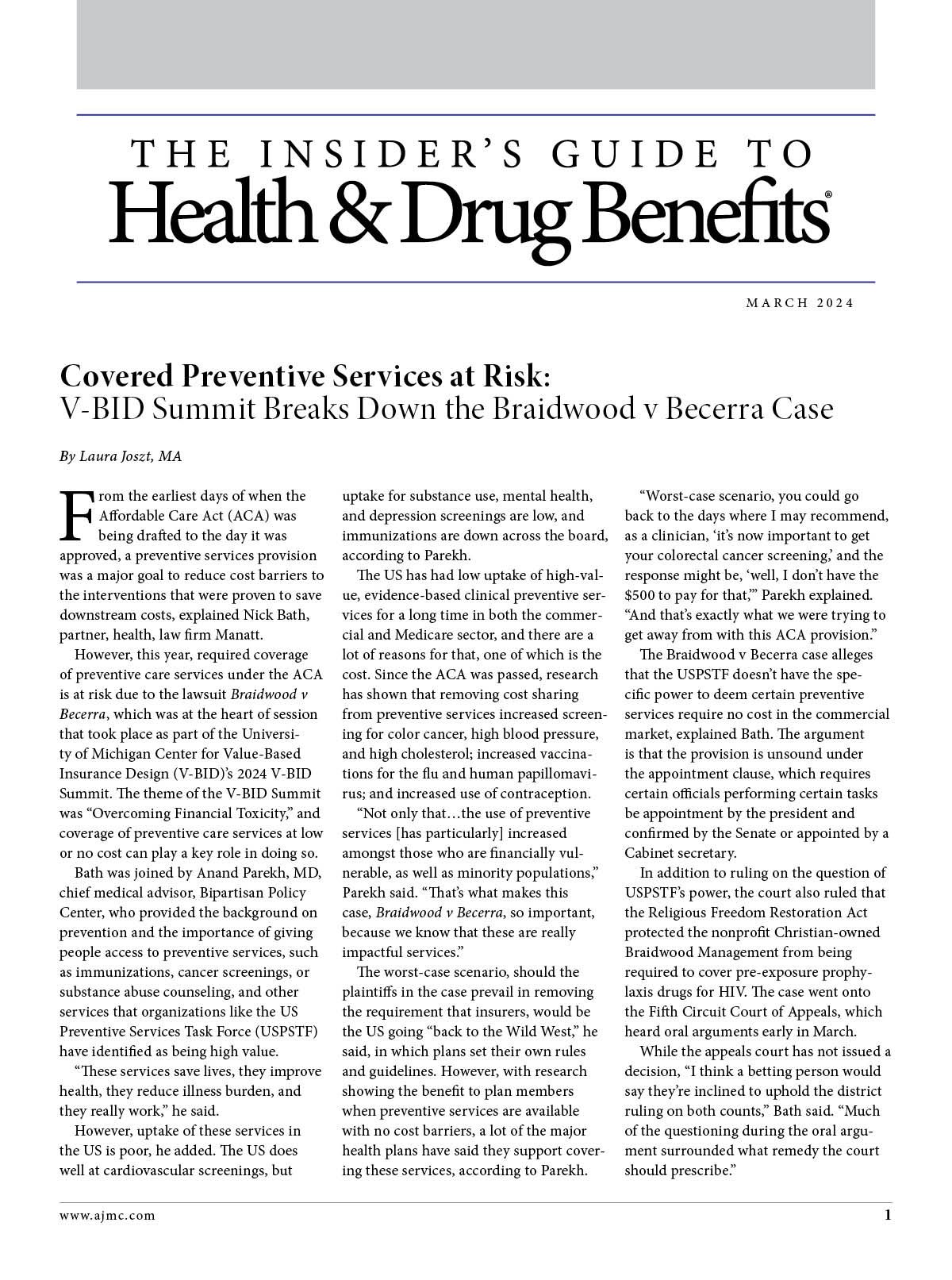- Center on Health Equity & Access
- Clinical
- Health Care Cost
- Health Care Delivery
- Insurance
- Policy
- Technology
- Value-Based Care
Study: ACA Medicaid Expansions Increased Coverage for Childbearing Age American Indian, Alaska Native Women
The Affordable Care Act (ACA) Medicaid expansions increased health care coverage for American Indian/Alaska Native (AI/AN) women of childbearing age but had limited effects on prenatal care, birth outcomes, and health care supply.
The Affordable Care Act (ACA) Medicaid expansions increased coverage for American Indian/Alaska Native (AI/AN) women of childbearing age, according to a study published in Health Affairs.
Compared to national averages, the researchers explained that AI/AN women face elevated rates of uninsurance, poverty, poor birth outcomes, and chronic diseases, particularly hypertension and diabetes. Enacted in 41 states from 2014 through 2023, the US government attempted to increase health coverage for women with incomes up to 138% of the federal poverty level, regardless of pregnancy, through the ACA Medicaid expansions.
Despite its potential benefits, barriers like health care professional shortages, underfunding of the Indian Health Service (IHS), and discrimination in health care settings impacted the effectiveness of the expansions on AI/AN women of childbearing age. Although they increased insurance coverage among low-income patients, most studies found that the Medicaid expansions did not improve early prenatal care, preconception health conditions, or birth outcomes.
To build on these findings, the researchers created a difference-in-differences study design to compare health care usage and health outcomes among AI/AN women between the ages of 19 and 45 before and after Medicaid expansions; they paid special attention to where they live, comparing the impact of Medicaid expansions on women living in areas with relatively high percentages of reservation land and on women living in metro areas.
The researchers used data from the 2010 to 2019 sample of the American Community Survey to study insurance, data from the 2010 to 2019 Natality All-Counties Files to study maternal and infant health, and county-level data from the 2010 to 2019 Area Health Resources Files to describe health care supply.
The Affordable Care Act (ACA) Medicaid expansions had limited effects on prenatal care, birth outcomes, and health care supply. | Image Credit: rufous - stock.adobe.com

Through the American Community Survey sample, the researchers determined that, before Medicaid expansions, AI/AN women had an uninsured rate of 24.5%, 26.6% reported only having Medicaid, 10.4% reported only using the IHS, and 7% reported having Medicaid in combination with the IHS. On the other hand, within the Natality sample, 64.1% of AI/AN mothers reported having prenatal care in the first trimester, 6.2% of births weighed less than 2500 grams, and 3.5% were diagnosed with hypertension or diabetes before pregnancy.
After Medicare expansions, the researchers found the proportion of AI/AN women reporting health care coverage from both Medicaid and the IHS increased, with a larger impact on those living in areas with relatively high percentages of reservation land. More specifically, they associated the expansions with a 7.9% increase in Medicaid coverage, a 3.9% reduction in uninsurance, and a 3.8% decline in coverage by private insurance only.
Additionally, the Medicaid expansions did not impact first-trimester prenatal care usage or birthweight among AI/AN women. Conversely, they found diagnoses of prepregnancy diabetes or hypertension increased by 0.58% after the expansions, particularly in women living in areas with more reservation land.
Lastly, in terms of health care supply, the researchers reported the density of physicians, especially specialty physicians, to be strikingly lower in AI/AN counties before Medicaid expansions. Provider density did not change after the expansions, with both AI/AN counties and comparison counties in non-expansion states having lower densities of physicians in comparison to those in expansion states.
The researchers acknowledged their study’s limitations, one being that their data had limited sample sizes in select state-year cells due to the small AI/AN populations in some states. Also, the available data did not provide direct measures of women's connections to tribal communities or usage of tribal or IHS services. Despite these limitations, the researchers highlighted areas of future improvement to benefit AI/AN women based on their findings.
“Although state Medicaid expansions had positive effects on AI/AN women’s insurance coverage, policy makers seeking to improve AI/AN health should take a more comprehensive approach to improving social and environmental determinants of health and building on cultural and local resources,” the authors concluded.
Reference
Strully KW, Chatterji P, Liu H, Han S, Schell L. Effects of Medicaid expansions on coverage, prenatal care, and health among American Indian/Alaska Native women. Health Affairs. 2024;43(3):344-353. doi:10.1377/hlthaff.2023.00672

